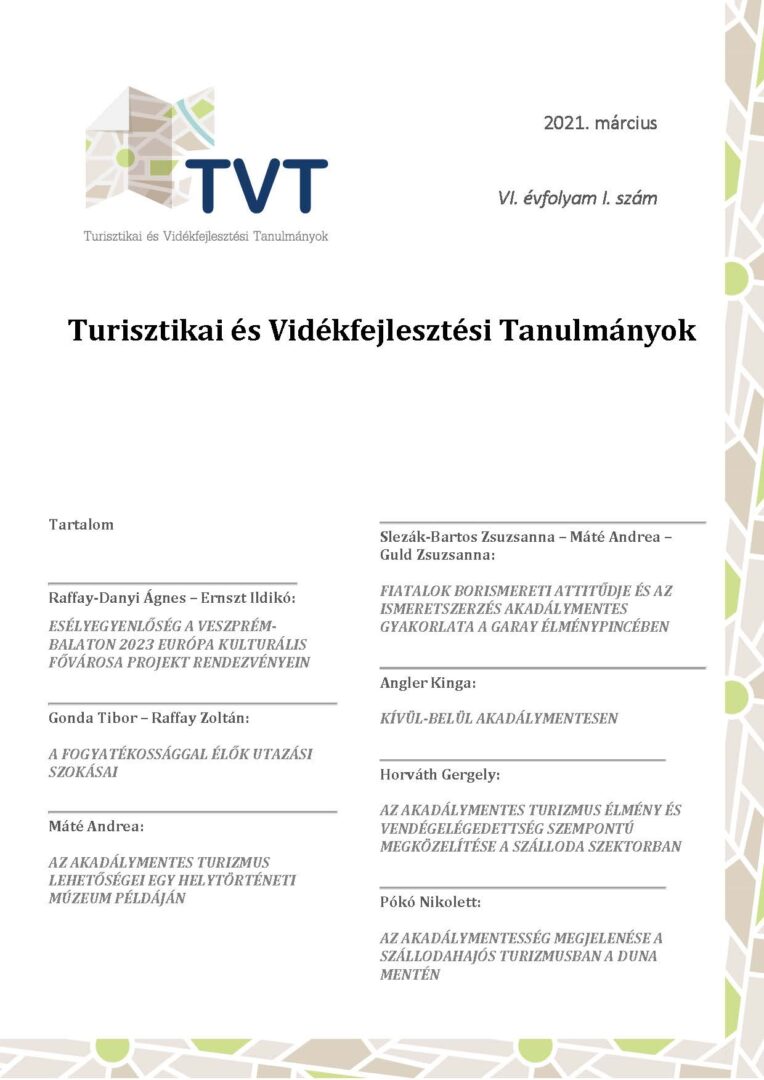A FOGYATÉKOSSÁGGAL ÉLŐK UTAZÁSI SZOKÁSAI
Kulcsszavak:
akadálymentes turizmus, utazás gyakoriság, motiváció, turisztikai termékAbsztrakt
A hazai turizmuskutatás nem eléggé vizsgált területe az akadálymentes turizmus. Csak az elmúlt
néhány évben figyelhető meg ebben változás, az által, hogy néhány kutató érdeklődési körébe
került a téma vizsgálata. A szerzők egy kérdőíves vizsgálat eredményére építve mutatják be a
fogyatékossággal élők utazási gyakoriságát és utazási keresletük néhány fontos vonását. A hazai
szakirodalom összefoglalása mellett kitérnek a meghatározó nemzetközi szakirodalom
bemutatására is. Az akadálymentes turizmus kérdésköre az európai lakosság 10%-át érinti, tehát
túl a kérdés társadalmi és szociális jelentőségén, piaci szempontból sem elhanyagolható létszámról
van szó. Az érintettek elvárásainak és speciális fogyasztói szokásainak a megismerése feltétlenül
szükséges a megfelelő kínálat kialakításához, illetve a szolgáltatások egyenlő esélyű elérésének a
biztosításához. A szerzők, a Peer Act nevű Erasmus projekt szakértőiként közreműködve hazánkon
kívül további 4 ország (Németország, Olaszország, Spanyolország és Horvátország) kismintás
kutatási eredményeire is kitérnek.


